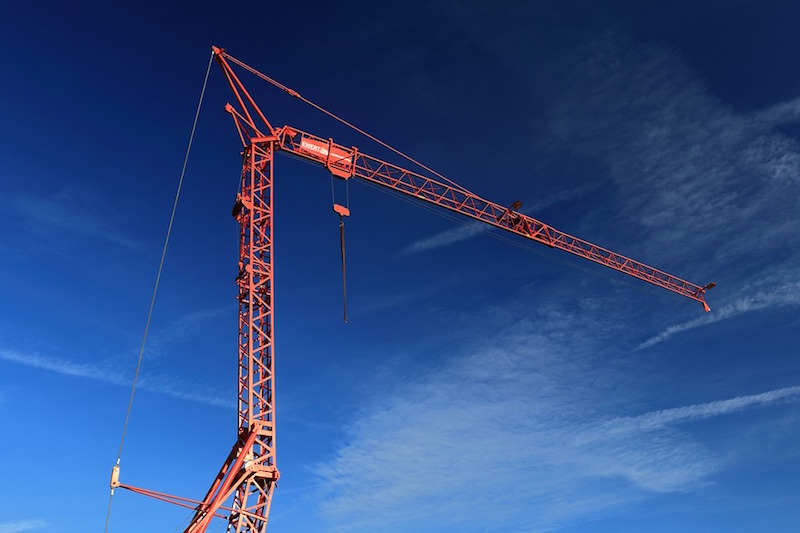After three partial collapses of construction cranes during Hurricane Irma, officials are debating whether regulations should be tightened.
Two crane booms in Miami and one in Ft. Lauderdale collapsed during the storm, with no injuries reported. The equipment was supposed to be able to withstand 145 mph winds, but the highest gusts recorded in the area were 100 mph.
Any initiative to impose tougher regulations on cranes would be complex, with federal, state, and local authorities all having a hand in rulemaking and oversight. Cranes are regulated by the federal government’s Occupational Safety and Health Administration. Florida statute preempts cities from enforcing laws regulating cranes, but Miami does enforce codes and regulations on the construction and maintenance of buildings. The multiple authorities have some overlap when it comes to construction cranes, at least in theory.
Industry trade groups warn that new regulations should wait until more is known about what caused the collapses. All of the collapses occurred where cranes were set up at 300 feet high or higher, and there is limited data on wind speeds at those heights during the hurricane.
Related Stories
| Sep 30, 2022
Lab-grown bricks offer potential low-carbon building material
A team of students at the University of Waterloo in Canada have developed a process to grow bricks using bacteria.
| Sep 27, 2022
New Buildings Institute released the Existing Building Decarbonization Code
New Buildings Institute (NBI) has released the Existing Building Decarbonization Code.
| Sep 22, 2022
Gainesville, Fla., ordinance requires Home Energy Score during rental inspections
The city of Gainesville, Florida was recently recognized by the U.S. Dept. of Energy for an adopted ordinance that requires rental housing to receive a Home Energy Score during rental inspections.
| Sep 19, 2022
New York City construction site inspections, enforcement found ‘inadequate’
A new report by the New York State Comptroller found that New York City construction site inspections and regulation enforcement need improvement.
| Sep 16, 2022
Fairfax County, Va., considers impactful code change to reduce flood risk
Fairfax County, Va., in the Washington, D.C., metro region is considering a major code change to reduce the risk from floods.
| Sep 13, 2022
California building codes now allow high-rise mass-timber buildings
California recently enacted new building codes that allow for high-rise mass-timber buildings to be constructed in the state.
| Sep 8, 2022
U.S. construction costs expected to rise 14% year over year by close of 2022
Coldwell Banker Richard Ellis (CBRE) is forecasting a 14.1% year-on-year increase in U.S. construction costs by the close of 2022.
| Aug 29, 2022
Montana becomes first U.S. state to approve 3D printing in construction
Montana is the first U.S. state to give broad regulatory approval for 3D printing in building construction.
| Aug 25, 2022
New York City’s congestion pricing aims to reduce traffic, cut carbon
Officials recently released an environmental assessment that analyzes seven different possible pricing schemes for New York City’s congestion pricing program.
| Aug 23, 2022
New Mass. climate and energy law allows local bans on fossil fuel-powered appliances
A sweeping Massachusetts climate and energy bill recently signed into law by Republican governor Charlie Baker allows local bans on fossil fuel-powered appliances.

















